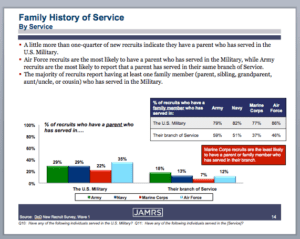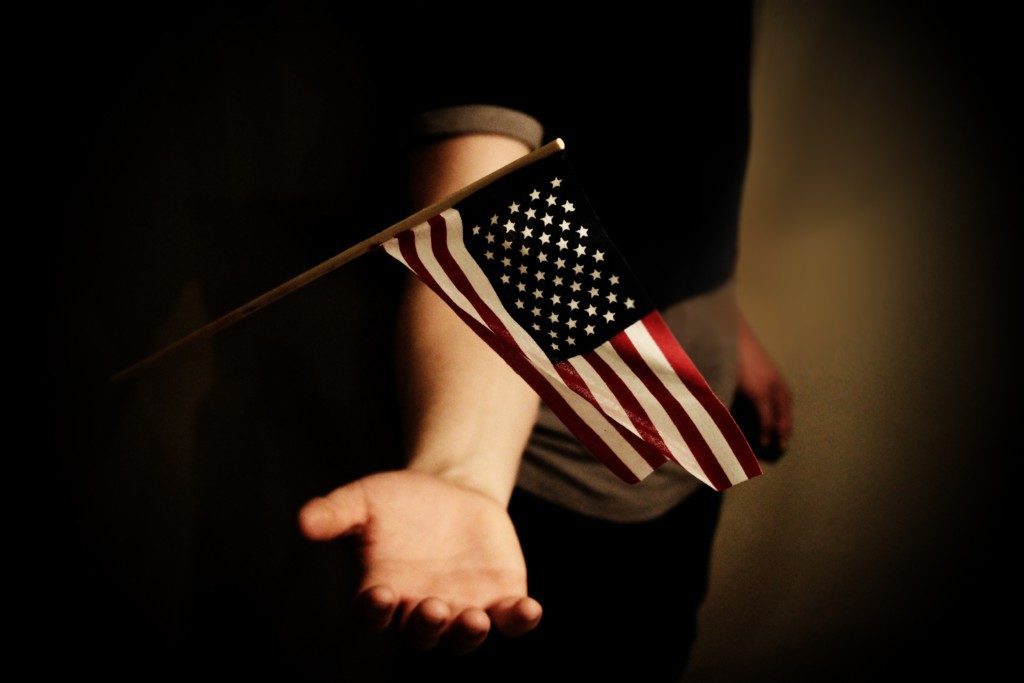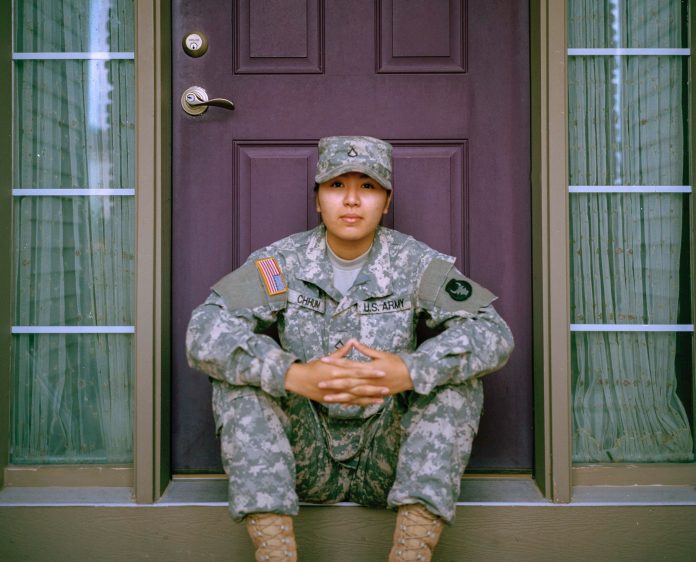I was never one of those girls that dreamed about or pre-planned my wedding in my head, nor did I give much thought to being a mom. But I have long dreamt of and anticipated becoming a grandmother.
A few months ago, my firstborn son welcomed his firstborn son into the world, making me a first-time grandmother. And I am over the moon!
He’s perfect in every way: wispy newborn hair, button nose, almond-shaped eyes, and chubby cheeks just begging to be pinched. I know this only through the miracle of modern technology because I haven’t met him in person yet. And, I don’t know when I will be able to meet him due to far-flung assignments and a global pandemic.

Even if we weren’t experiencing a pandemic, I still would not have been able to be there for his arrival. He was born OCONUS, and making a several thousand-mile trip halfway around the globe is not something one can do at the drop of a hat. But pre-pandemic, I was planning on making the trip to see him within a month of his birth.
Throughout my daughter-in-law’s pregnancy and while sharing the happy news with people, I was invariably asked if I planned on being there for the birth. When I explained the distance to them, the disappointment on their faces was readily apparent: “Wow, that must be so hard!” or “Gosh, how disappointing!”
Of course, it’s hugely disappointing.
I’m bummed and wish the circumstances were different, but such is the lot of the military family. For those of us who support our soldiers, airmen, sailors, and marines, we know this is part of the deal.
Shortly before my grandson’s birth, I got to thinking that not only is this part of the deal for all military families but for my family, this is a well-established pattern. My grandson’s father was born OCONUS, and I was too. Neither of our extended families met us until a stateside PCS made it possible, and we were both toddlers by then.
This multi-generational epiphany prompted me to do a headcount of related veterans. In my husband’s and my family, we can count 21 veterans across three generations.
A quick check of statistics tells me that we are not unusual. In their January 2020 report, “Who Signs Up to Fight? Makeup of U.S. Recruits Shows Glaring Disparity,” Dave Philipps and Tim Arango found:
More and more, new recruits are the children of old recruits. In 2019, 79 percent of Army recruits reported having a family member who served. For nearly 30 percent, it was a parent — a striking point in a nation where less than 1 percent of the population serves in the military.
In his 2016 article, “Here’s why the U.S. Military Is a Family Business,” Mark Thompson notes that since the draft ended in 1973, being born into a military family has become an important marker toward a stint in our armed forces. When averaged together, 81% of new recruits in 2016 had a close relative who has served.
 That seems a bit shocking, but should it be? Along with the relative who served comes familiarity and support. Can you imagine your service member navigating the unique stresses and demands associated with military service without family support?
That seems a bit shocking, but should it be? Along with the relative who served comes familiarity and support. Can you imagine your service member navigating the unique stresses and demands associated with military service without family support?
Most people are awed, impressed, and grateful when they learn that all of my children chose to serve in the military.
And honestly, it’s easy for me to support them; military service is a familiar animal to me.
But not all parents are supportive of a decision to serve, as I quickly learned when my firstborn decided to embark on a military career. We were five years into the war on terror with no end in sight, and I was nonplussed by the number of people who vehemently stated that I was crazy for letting him do that. The ridiculous notion that I could have stopped him notwithstanding, I found myself declaring—often—“I’m not going to stop my child from pursuing a career path, and a noble pursuit by the way, just because I’m afraid something might happen to him.”
These statistics do raise a valid question: should our fighting force be a “family business”? In 2017, Amy Shafer didn’t think so. She bluntly asserts in her piece titled “The Warrior Caste:”
America increasingly relies on a small group of multi-generational military families to fight its wars. That’s a problem.
Anthony M. Kurta, acting undersecretary of defense for personnel and readiness, told the National Commission on Military, National, and Public Service last year that, “A widening military-civilian divide increasingly impacts our ability to effectively recruit and sustain the force. This disconnect is characterized by misperceptions, a lack of knowledge, and an inability to identify with those who serve. It threatens our ability to recruit the number of quality youth with the needed skill sets to maintain our advantage.”
 With an all-volunteer fighting force, the answer to the lack of disparity is not an easy one, but that doesn’t mean nobody’s trying. Phillips and Arango described the Army’s plan. “With the goal of recruiting about 68,000 soldiers in 2020, the Army is now trying to broaden its appeal beyond traditional recruitment pools. New marketing plays up future careers in medicine and tech, as well as generous tuition benefits for a generation crushed by student debt. The messaging often notes that most Army jobs are not in combat fields.”
With an all-volunteer fighting force, the answer to the lack of disparity is not an easy one, but that doesn’t mean nobody’s trying. Phillips and Arango described the Army’s plan. “With the goal of recruiting about 68,000 soldiers in 2020, the Army is now trying to broaden its appeal beyond traditional recruitment pools. New marketing plays up future careers in medicine and tech, as well as generous tuition benefits for a generation crushed by student debt. The messaging often notes that most Army jobs are not in combat fields.”
A generational tendency to gravitate toward familiar careers is nothing new. Just look at police officers, firefighters, and medical professionals —the list is endless. So, I ask again: is it really that surprising to learn that our nation’s defense is also a statistical family business? But, we also need to ask: should it be that way?
Everybody benefits equally from a strong national defense. So shouldn’t everybody who is able to contribute equally to manning it?
So, back to the original question that got me thinking of all this: when will I get to meet my new grandson?
I don’t know. I have to wait for travel restrictions to be lifted. But for now, I’m at the mercy of a virus that looks like a Styrofoam Christmas ornament made by a five-year-old, and I’ll just have to be satisfied with pinching those chubby cheeks virtually.











